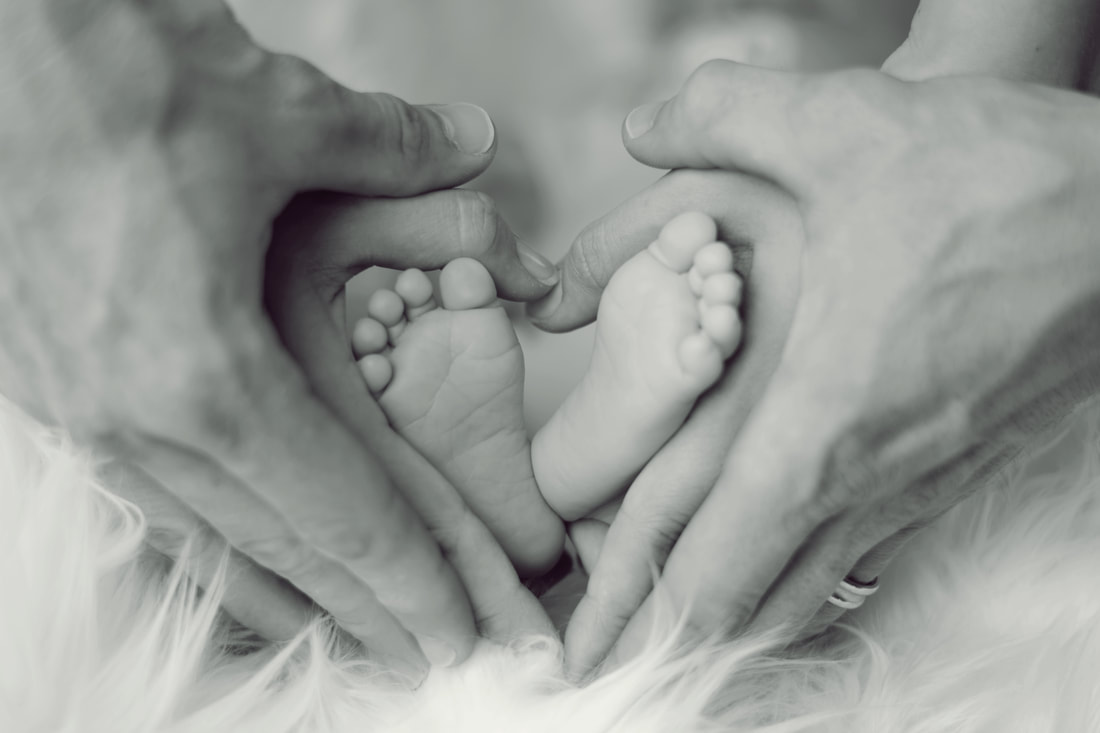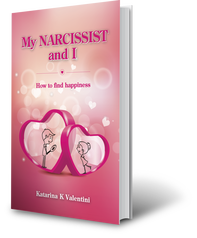|
The shit has hit the fan. Many of you have grasped that and follow the instructions to self-isolate and limit social contacts. Well done, congratulations and thank you. There are unfortunately still many others, who continue pretending that corona virus is nothing but a flu. Needless to say, most of these jackasses know shit about medicine, science or biology. Pardon my French! Yet, they spread their gospel on all forums and comments sections. Who are they?
It is no mystery that we live in a narcissistic society, where the most important person in this world is a given individual or a group of individuals. Narcissists. Rules that apply to the general population don’t apply to them. Why would they? Nobody tells a narcissist what to do, or god forbid, what not to do. If they want to go out for coffee or a beer with their gang, they will do so. No force in the world will prevent them from doing so, because just who do you think you are telling them what to do? Have I mentioned they know best, even about things they have absolutely no f…ing clue about? Their motto in life is “I can do whatever I want to, I am omnipotent and the smartest.” They are convinced a virus, sorry, a mild flu, will never catch them. But just in case it did, those who can, board a private jet and fly off to some distant location, pretending they’re safe there. It doesn’t even occur to them they might be infected and not yet showing signs. They don’t consider for a second that they might spread the virus to the more vulnerable populations or to other people in countries where the health systems is much weaker than in their own countries. Incidentally, should these narcissists so much as sneeze, they will go running to their doctors, demanding they preform tests on them and focus all attention on them, because they deserve priority treatment. All the others can die as far as they’re concerned. Sorry, I’m talking nonsense, they will run to the ER, because their lives are at risk, you know coronavirus and that, and they need full medical treatment, not just a consult and a prescription. Wait, I’m confused now, wasn’t it just some mild flu? Well, yes, so long it was someone else’s problem. Bottom line, even when you feel like you’re helpless, on the verge of emotional meltdown, confused, scared and anxious, don’t be a narcissist. Instructions are clear, contact numbers are made available, help is available if you really need it. Just don’t make it all about you and your fussing, when so many people in dire need might be refused treatment because of your selfishness, insecurity or plain stupidity. Please, don’t be a narcissist!
0 Comments
Divorce is never easy on anyone, least of all children who get caught in the crossfire of their warring parents. More often than not, it brings out the worst in at least one of the parents. To a certain extent it is understandable that people react in the most unusual ways, because they feel hurt, humiliated, defeated, no longer loved. When you feel like you’re drowning, you will definitely do whatever it takes to survive. Going through a divorce or a separation can bring about similar feelings. and if you’ve been humiliated, then revenge is probably on your mind as well, at least for a moment or two.
However, no matter how understandable certain outrageous reactions might be, they are never acceptable nor justifiable. Especially when they have such a devastating impact on children. I am not talking about physical violence, that is a category of its own. I am talking about psychological manipulation and blackmailing, intimidation and conditioning. That is what children are exposed to in court and out-of-court battles. When narcissistic parents split up, the reactions are that more vicious. The reason for it is simple – narcissists present themselves as perfect, on the surface they actually believe to be outstanding, despite the fact that deep down they consider themselves worthless. In trying to prevent the underlying depression and feelings of not being good enough to come to the surface, narcissists go that extra mile and do whatever they possibly can to save their reputation and their false feeling of infallibility. The narcissist will try to humiliate and devalue the other parent, present them to their children as bad persons who don’t love them, are unreliable and are not to be trusted. Saving face, coming out on top and defeating their spouse is their mission number one. In order to gain victory, no strategy is off limits. The other parent can be ridiculed, lied about, discounted, attacked, presented as the most horrible person to have ever inhabited this planet. Now imagine what kind of an impact that has on children? When they witness their parents in an open conflict in which they are being used as a weapon. When they are cajoled by the narcissistic parent into choosing them, because why would the child choose the other parent if the narcissist is the best parent you could possibly wish for. The narcissistic parent requires children to act happy when they are with them, to pretend they prefer them over the other parent, they openly make them choose one parents and reject the other one. Children are too often victims of irresponsible, selfish and egocentric narcissistic parents who are doing their utmost to destroy each other. Such parents rarely take into consideration the psychological and emotional state of children, not to mention their needs and desires. They scar them for life and we shouldn’t be terribly surprised when these same children then repeat the patterns from their family in their own relationships and interactions with other people in their lives. It is amazing just how adamant we tend to be whenever the issue of adultery comes up. On the surface many of us believe in the sanctimony of marriage and committed relationships, and are horrified whenever we hear of infidelity. Being loyal, faithful and true is what many expect our partners to be. The mere idea of them or us being unfaithful makes us uneasy, ashamed, guilty, petrified, to name but a few possible emotional responses.
Think back to your reaction when you heard that someone was cheating or being cheated on. Let’s assume that your best friend’s husband was cheating on her with his sexy work colleague, or that your mother was having some fun with her hot personal trainer, something your father of course had no clue whatsoever. For the sake of argument, let’s say that your mother is in an unhappy marriage and still having an affair with that same hot shot from the gym. How did you feel when you learned about it? Were you surprised? Outraged? Angry? Disappointed? Judgmental? Sad? Did you experience the same emotions regardless of whether your friend / parent / colleague was cheating or being cheated on? Were you being more understanding and supporting if your friend was “the guilty party”? Have you ever considered the whole picture, taking into account the relationships in question in their entirety? Were you truly privy to all pertinent information regarding a specific couple? Yes, trust is essential if we want to have a successful relationship. In my opinion, so are fidelity and loyalty. But once trust is lost and doubt creeps in, it is difficult to open up, be vulnerable, share things, confide in our partners and rely on them. Because, how can we know we won’t get screwed again? Many couples don’t survive the infidelity, even if they don’t split up. It is the lingering mistrust that never goes away, erodes the relationship and prevents things to getting back to normal. Often many couples try to simply sweep the issue under the carpet and refuse to deal with it in an open manner, after the phase of mutual accusations has been completed of course. Hence, there is never any closure of the hurtful situation. Yet, there are also couples who are in a rut and need a wake up call to realize just how important a relationship is to both partners. An affair usually is such a wake up call. There are also couples in an open relationship, to whom fidelity and exclusivity don’t matter much. Then again, there are happy couples where many elements in the relationship are great, yet others, sex in particular, are not. Imagine a couple where the need for intimacy differs significantly, or one where one partner is physically incapable of intimacy due to illness. Does that mean that one partner has to just give up sex forever? What I am trying to say is that we shouldn’t be judgmental whenever we hear of adultery. We often don’t know what is happening in the couple. Plus, we are frequently biased, immediately taking the side of the “injured party.” What surprised me was how many people actually cheat and think it is not that relevant. Even people who, I thought, were in a loving and committed relationship. Well, appearances can be deceptive. Every couple is unique and so long as all parties are informed and agree, I’m not going to say anything. But I have also seen many couples where infidelity caused a lot of damage, not only to the adults in the relationship, but children as well. Many adulterers claim that it’s all biology, that it’s in their genes, that it’s something unavoidable, necessary even if we want to make sure that mankind doesn’t die out. Maybe, but how come then that married men or women don’t’ have children with their lovers? Cheating is often an expression of dissatisfaction in a marriage, an escape from the daily grind, an attempt to feel wanted and desired, an experiment to see if the grass is greener on the other side, a cry for help even. Some people just like to cheat because they prefer superficial relationships or lack responsibility. If you married one like that, don’t be surprised when it happens. Women in particular have a tendency to pretend to be ignorant when they know deep down that their partner is being unfaithful. Infidelity, like so many other forms of behavior, happens because we allow it. Therefore, choose your partner carefully. Make sure you honestly talk things out. If you think that your viewpoints on relationships and life in general are too different, don’t settle for that person. Most of all, take responsibility for your life and your choices. Very few things in life are final, much can be changed if you know what you want. Choose a life and partner to your liking, because life is short and you don’t want to spend it with someone who wants you to share him or her, especially if that is not part of your plan. It often happens that we start to feel a void after we had completed something or reached a goal. We had spent months preparing for an event – be it an exam, a competition, an important milestone in life or at work, the possibilities are endless. During that time, we were so committed and focused on the task at hand that we barely noticed just how much energy and emotions actually went into reaching that target. At an odd moment in the process, when it hit us just how tired we were, we told ourselves that as soon as the process has been brought to completion, we would relax, rest and enjoy life again.
But does that always really happen? The feelings of elation, success and complete joy usually don’t last very long. Instead of it we frequently feel empty, without purpose in life and lost as to what to do next. What can we do in those instances when we feel like we’re aimlessly meandering through life? How can we fight the depression that slowly creeps in and sometimes takes us over completely? First of all, we have to realize that feelings of emptiness are completely normal after we had completed a physically strenuous or emotionally charged task. Even if it is something that we had been looking forward to. You know how you’re hoping for something to happen, and when it finally does, you think to yourself “This is it? Now what?” Don’t stress about feeling the void, just accept it. No need to add anxiety to an already less then ideal state of mind. Mindfulness techniques can help you, as can meditation. Second of all, examine the potential reasons for the emptiness you’re feeling. What are the real reasons you wanted to achieve what you had set out to achieve? Have you been completely honest with yourself about the expectations you had? Third of all, explore the void inside you. Sounds stupid? The fact is, we tend to busy ourselves with a million different tasks just to avoid the feeling of emptiness. Usually, that emptiness has its root causes. There is a reason why we feel it. Maybe it reminds us of past unresolved issues and situations. Therefore, understanding what it is all about will help us integrate the parts of our psyche we chose to suppress. Finally, try to enjoy every day of your life. Focus on the little things that make you smile or happy or fulfill you. Life isn’t always about chasing big dreams and aiming high. Use the lull in your life to do things you have always wanted to but never found the time to do. Spent time with people you care about, allow yourself to do nothing at all, take a new class, travel, read, do whatever your heart desires. Sooner or later you will be pulled back into the hectic pace of life and will look longingly at the time when you had nothing urgent to do. I have read several articles lately in which the authors argue that the narcissistic personality disorder (NPD) is genetic and hence hereditary. In their opinion, the nurture component is almost irrelevant in the making of a narcissist. They put nearly all the blame on the nature component and substantiate it by referring to conclusions in several scientific studies. Let me try to explain why I disagree with them.
When it comes to the development of our personality, nature and nurture play the decisive role. Scientists have still not come to a consensus as to which of the two is more important. Fate also has a part to play in it, because we don’t choose where, when and to whom we will be born, nor what our biological makeup will be like. Nature encompasses our genetic predispositions. Nurture encompasses our environment – the physical environment we live in and, more importantly, the people we live and interact with. The pivotal role of the significant other in our lives cannot be overstated. The significant other are our parents, other adults in our lives who have an impact on our cognitive and emotional development, friends, and later on, our partners. Another element that needs to be taken into consideration when trying to explain the development of narcissism is the composition of our personality. Our personality consists of two elements – character and temperament. It relates to our thinking, motivation and behavior. Character is not given at birth, but is shaped gradually throughout life. Our environment, thoughts, feelings and behaviors shape our character. Temperament is determined by the biological factors and is thus relatively fixed. It is what we inherited, hence we call it our biological, genetic and instinctive part of the personality. For example, temperament defines whether we will be more of an introvert or more of an extrovert. In case of the latter, the development of narcissistic traits is more likely if our parents never frustrated our demands and failed to set boundaries. The most critical developmental period is around the age of three, when everyone goes through the omnipotent phase. When it comes to narcissists, nature does not hold much responsibility for how they turned out. Yes, nature gives them certain predispositions (temperament traits), but it is the nurture component that impacts to what extent those temperament traits will express themselves. What is more, nature will enhance their character traits in a healthier or in a more pathological direction. Like all people, narcissists, too, were once small babies in need of love, care, affection, nurturing, protection and mirroring from their parents. In the lives of narcissists, there was just never the right amount of any of it. Let me now touch upon a few arguments that have been forwarded in different hypotheses about narcissism being genetic. In one study[1] the authors looked at what they call “the narcissistic instincts.” They also observed the body language of individuals and inquired about how they would define their personality. While I agree with the authors that, by definition, the instinct is not something shaped by the nurture component, I fail to comprehend how they defined and measured instinct as such, or how the body language can be used to label someone as a person with NPD. What is then the difference in body language exhibited by a NPD person and someone who is self-confident? In another study[2] the authors focused on grandiosity and entitlement, which are two of the most prominent narcissistic characteristics. Their reasoning is well elaborated. However, grandiosity and entitlement are not something we are born with, they are learned behavior. Do children or adolescents really behave in a grandiose and entitled manner of their own volition? Isn’t it more likely that they have learned how to be arrogant, vain and condescending? That they have modelled other people in their environment, first and foremost their adult significant others? Children learn about feelings and appropriate behavior through their parents’ mirroring. Grandiose behavior is not self-initiated, so how can it be genetic? Several scientific articles have also been written on the subject of brain structure and gray matter abnormalities[3] in NPD persons. What these authors focused on is another hallmark of narcissists, the lack of empathy. I have already written in one of my other blogs that narcissists don’t lack empathy, they just experience it differently. It is more self-referenced and intellectual compared to the empathy most other people feel. Of the three articles I mention, this one is the most scientifically watertight because brain imagery was used. Nonetheless, we cannot ignore neuroplasticity and the impact parenting has on the development of brain. Just like psychotherapy can play a restorative role in enhancing the creation of new connections between neurons [4]. Therefore, the nurture component can’t be completely dismissed. Wouldn’t it be easier if the origins of narcissism were attributable to genetic factors alone? It would mean that we, as parents and members of a society, hold zero responsibility for the development of pathological narcissism in children and later on in adults. Sadly, the nurture component cannot be ignored. Although the genetic make up of an individual is not negligible, I still strongly believe that narcissists are made, not born. Even if someone has a temperament that is susceptible to lead that individual in the narcissistic direction, it is still the nurture component that can reroute it into a healthier one. [1] Afacan Y, Chaudhry F, Santangelo V, Shkolnik A (2017) Narcissism is Genetic and the Superego Keeps it in Check. JSM Anxiety Depress 2(1): 1021. [2] Luo, Y. L., Cai, H., & Song, H. (2014). A behavioral genetic study of intrapersonal and interpersonal dimensions of narcissism. PloS one, 9(4), e93403. doi:10.1371/journal.pone.0093403 [3] Schulze, L., Dziobek, I., Vater, A., Heekeren, H., Bajbouj, M., Renneberg, B., Heuser, I., & Roepke, S. (2013). Gray matter abnormalities in patients with narcissistic personality disorder. Journal of Psychiatric Research, 47(10), 1363-1369. [4] Malhotra, S., & Sahoo, S. (2017). Rebuilding the brain with psychotherapy. Indian journal of psychiatry, 59(4), 411–419. doi:10.4103/0019-5545.217299 I often get asked by clients in my practice “what is wrong with narcissists!?” Well, in my opinion, there is nothing wrong with them per se, at least with the majority of them. They are facing similar problems and issues as most of us do. But if you have ever browsed through the titles of books and articles on narcissists, you have certainly noticed that most of them talk about narcissists as some horrible creatures that must be avoided, escaped from, disarmed, defeated, and the like. One would think that there is absolutely nothing positive about them and that they are a modern day plague wreaking havoc in our personal and professional lives. The popular belief about them goes exactly like that. However, if we want to better understand narcissists and their way of being and behaving, we need to take a broader look at them. We cannot just stick to the narrow-minded conviction that they are despicable beings that should be shunned. I, for one, like narcissists and am rooting for them because I know that they are not the only ones to be blamed for everything that goes wrong in our relationships with them.
But let us first look at some general assumptions about narcissists with which I concur. Most of us would agree that narcissists are fascinating, attractive, intelligent, gallant, charming, successful, wonderful, charismatic, enigmatic, yet very self-absorbed and self-referenced people to whom we get attracted like moths to a flame. We cannot but like them and be mesmerized by them. They often give the impression of being superhuman, because listening to them we get the feeling that they are the masters of all trades and capable of achieving everything they set their minds to. However, they can also easily swing from one extreme to the other – from being wonderful and loving to being scornful, rejecting, cruel and humiliating. Therefore, we never know for sure what awaits us when we next see them. We are often left dumbfounded by their behavior. Hence the question “what is wrong with them?” Narcissists only seem to notice or take interest in other people when they need them, so that they can use them as a source of the narcissistic fuel and discard them as soon as they feel the devotion and deference to them crumbling. Unfortunately, that is frequently true. However, another theory prevails about them that I cannot agree with. One that leads many people to assume the worst about narcissists. Namely, that narcissists have zero empathy. Even the clinical definition goes that narcissists desperately lack empathy. It is true that the empathy narcissists feel is different in quality from that experienced by non-narcissistic people. While narcissists’ empathy is certainly more self-interested and intellectual, we cannot honestly claim that they have none of it. They have it, but are often not using it for the common good. If they truly had no empathy, then they would never have been able to charm our socks off, manipulate us or get under our skin. Yet they do, because they can empathically attune to our feelings and needs, and provide us with exactly what we need, albeit briefly it may be. Unfortunately, not many people take the time to see past the narcissistic mask that narcissists wear in public. Very few make the effort to climb over the wall narcissists surround themselves with in trying to hide their true self. What often gets overlooked, too, is that not all narcissists are the same. Malignant narcissists can much more be likened to people with antisocial personality disorder and should certainly be avoided. As for the other types, the toxic, show-off/gregarious and covert/vulnerable narcissists, we should be more understanding and less hostile towards them. Namely, the persona the narcissists display in their vain, pompous, condescending, arrogant, haughty public appearances is very often a defense mechanism. Deep down, narcissists have a terribly poor opinion of themselves. They consider themselves not worthy of love, have a very negative self-image, suffer from depression and abandonment anxiety and are convinced that other people are better than they are. Therefore, they need to wear all that armor just to be able to survive emotionally. But not many people notice or know that, not even narcissists’ partners. Hence, they engage in power struggles with narcissists, in the game of getting the upper hand – which only makes negative characteristics of everyone involved in the relationship to come to the surface. If I had to answer the question “what is wrong with narcissists?” I would have to extend that question to the people who enter in relationships with them and ask the same question about them. What is wrong with us that we allow narcissists to behave horribly towards us? Why do we put up with it? Because we, too, get hooked to the narcissists and cannot let go, despite all that is wrong with them. We get entangled in the negative dynamics not only because there is something wrong with narcissists, but because there is something wrong with us as well. We all contribute to the toxic and co-dependent relationships that we form with narcissists. How can we then define this “wrong” in all of us? The term does not mean that there is actually something wrong with us, in the sense that we are abnormal, weird, crazy, unworthy or not good enough. WRONG in this context can best be defined by our past unhealed wounds, our old script patterns and behaviors that we keep repeating, our unmet relational needs and the lack of self-worth. Therefore, instead of asking “what is wrong with narcissists?” let us rather look at how we contribute to their negative characteristics coming to the surface. As I have said in the introduction, I do not think there is anything wrong with narcissists. I like narcissists and find them to be charming, exciting, fun, smart people who bring color and spice to our lives. Problems arise when we start pushing each other’s wrong buttons out of our own insecurities. If we do not know which limiting script patterns govern our behavior and if we do not know how to change them, we will not be able to control ourselves nor handle narcissists. Having a fulfilling and healthy relationship with narcissists is possible, but we need to deal with our own “wrongs” before we can try to help resolve the “wrongs” of narcissists. Whenever we are on a first date, we usually worry way too much about how we are dressed, what we say, how we behave and the like. Quite frequently, we are not anything like our normal self, as we are trying to make a really good impression on the subject of our affection. In fact, we try so hard that we end up looking a bit goofy and silly at best. So who has the time to scan the person sitting across the table for potential signs that he is a narcissist, right?
Well, luckily, it is really not that difficult to spot a narcissist in any social setting, and even less so if we are on a date with him. The first likely sign that you are going out with a narcissist is that he chooses the most expensive and trendy restaurant in the city, even if the food there is not necessarily the best. What matters is that your are dining in the most expensive place in town. Second sign: he will probably pick you up in his very expensive car, which will be extremely clean, so you will potentially be asked to dust off your shoes before getting in the car. Sign number three: he will be better dressed than you are. Narcissists look like they just got off a photo shoot for a glam magazine, especially if they are on a mission to impress you. Sign number four: he will behave like a true gentleman from the moment he rings at your door to the moment you sit at the table. He will open the door for you, take your coat, gallantly walk behind you as he leads you to your table, his hand resting on your lower back. Sign number five: he will make sure you make an entrance when you walk in the restaurant because he wants all his friends and colleagues – who will undoubtedly be dining there, at least some of them – to see you, the trophy date he is taking to dinner. Sign number six: he will choose your food and wine. When he will engage in a conversation with the waiter, you will have the impression that he really knows what he is talking about as he explains just how the steak should be done and why that particular vintage is much better than the other one for the wine he selected. Sign number seven: he will be charming, expressing interest in you, seductive, flirting and making you feel special. Even so, if we move on to sign number eight: he will dominate the conversation. Even when he asks you to say something about yourself, he will steer the conversation back to him. The whole evening will be about him. Sign number nine: you will go home feeling on cloud nine as you believe you have spent the most magnificent evening of your life. Sign number ten: when you wake up the following day, you’re already yearning for him. You’re hooked. Not every narcissist is the same, some are more toxic than others. However, the first ideal date we had with him is no indication that the honeymoon will last. Sadly, the contrary happens more often than not. Being in a relationship with a narcissist is hard work and if you think that the prince charming from your first date will be making a regular appearance, you are unfortunately mistaken. Unless you make some changes about yourself and about your expectations of him, you will be regularly disappointed. Fear is one of those double-edged swords. If we fear our life might be endangered, the fight-flight-freeze reaction sets in precisely because of fear, which is good as it helps us deal with menacing circumstances. Each of the reactions has its own consequences, of course, some more favorable and others less so. Fear also causes us to be more cautious and not run headlong into a difficult situation. But what happens when fear is used as an unconscious excuse not to do something?
Off the cuff I would say that fear is something that prevents us from moving on, from taking a risk, from daring to be a little different, from having the courage to try something new, from leaving a toxic relationship, from being who we truly are, from expressing our wishes and needs. The list could go on and on. What do we fear most? What other people will say. Will they find me worthy or good enough? Will they still like me? Will they criticise or shun me? Have you ever noticed just how much influence what potentially others might think has on what we say or do? Being judged by others, even if complete strangers, is the one thing we are most terrified of today, because every troll can say whatever they want online without having the guts to debate it with us, without presenting proper argumentation. Then there is fear of failure, that is again related to what others will say. While we can get over the fact, with quite some pain and trouble, that we have not succeeded at something or experienced a total failure, our environment will most likely not let us forget it. In fact, many will revel in our loss and sorrow. What about the fear of being left alone and lonely? Why do we continue to cling to unhealthy relationships and to people who bring us nothing but pain? Because we fear that we will be left alone, that we will never find anyone new, someone who will like us for who we are. Fear is what paralyzes us and prevents us from moving on, from taking on a constructive risk, even when we know that we should be taking it. The fear of what ifs is the worst of all because we refuse to act out of fear of the unknown. Also, in a relationship with a narcissist, they make sure we are afraid all the time, that we are insecure all the time, doubting our own sanity. But in the end, fear is what prevents us from leading a full life, a life in line with our own wishes and desires. Being afraid means surrendering control of our life to someone else. It means giving up our power. It is much worse to live in constant fear than to take the risk that something magical could happen. It might not, not at first, but at least we would have tried. Don’t let others intimidate you because of their own insecurities. Be brave, take the risk, assume the responsibility, move on, be happy! Self-worth is one of those buzz words we stumble upon in inspirational speeches and magazine articles that prophesize “know your self-worth and the world will lay at your feet.” Knowing your worth is certainly something very positive and absolutely essential if you want to lead a stable, serene life. But how can you know what it is if you have never been taught?
Many of us feel that we are not good enough, either because we have never been told that we are or because we have never learned how to feel good enough. Our own sense of self-worth is conditioned by and dependent on the external factors. Hence, if we are good enough or not depends on what other people think about us. Which is terrible, because we will always be striving to please everyone but ourselves. We will not be living our lives in line with our true self. The sense of self-worth is something we usually acquire in our primary family when we are growing up. If our parents, mothers especially, never showed us that we matter, that we are worthy of love, attention, devotion and protection, then it is difficult for us to believe in ourselves and in our own importance. We don’t get a sense of self-worth simply by deciding that we are worthy. Yes, it is a necessary step in the process, but it doesn’t suffice by itself. Unfortunately, more than that is needed. Accepting it at a cognitive level doesn’t guarantee that we will fell it at an emotional level, where it matters the most. What does it mean to know your self-worth? First of all, you need to feel it in your gut that you are good enough as a person, that you are worthy of love and respect. Self-worth is related to the essence of who you are. When you feel self-worth you know your value. You are not swayed by other people’s opinions. You don’t compromise at your expense. You know how to set boundaries and stick to them. You know who you are and what you want and what is acceptable to you. You don’t yield under pressure when your values and beliefs are put to the test, just to please others. When you know your self-worth, you don’t tolerate what is not acceptable to you. Feeling worthy is not the same as being haughty, arrogant, conceited, condescending and the like. When you know your self-worth, such defensive behavior is no longer needed. You can insist on the “my way or the highway” on issues that matter most to you, and walk away with your head held up high regardless of what others think. You’re proud of yourself and know your own mind. You don’t question yourself and you don’t regret the decisions you have made. Once you achieve that, you’re practically invincible.  Today I wanted to write about how it feels to be in a relationship with a narcissist, because that is one of the topics covered in the book. However, spring is in the air, love and the bees and the flowers and the trees, so I thought I should rather share some thoughts about love and being in love. About romantic love, that is.
I am a staunch believer in the power of love and am convinced that being happily in love is the most wonderful feeling in the world. That is probably why I absolutely adore springtime when everything and everyone is blossoming and blooming, literally and figuratively. Therefore, I get somewhat annoyed whenever I read that being in love is actually a pathological state. As if love were a disease we do not wish to contract. When has being in love become a dirty word? While we can love many people, we are not usually in love with several people at once. This is what distinguishes an intimate relationship from a platonic, albeit loving, one. No matter how much we love someone, if we haven't experienced the being-in-love state of mind with that person, the love relationship won't last. If you don't get that warm, fuzzy feeling and if you have zero desire to touch or undress the person of your affection, then this is just a close relationship with someone you feel an affinity with. They also say that the butterflies in your stomach only lasts about six months, which coincides with the prescription date for being in love. After that it supposedly doesn't matter who you end up in a couple with because other things are more important than love. Well, that is what some authors believe, honestly. I just roll my eyes when I read that, but they claim we could live in a happy, satisfactory and fulfilling relationship with just about anyone in the world so long as we made an effort. That chemistry plays no role in a relationship. Excuse me, but that must be the greatest nonsense I have ever heard. I agree that love by itself often isn't enough, that there must be other common interests, values, beliefs and a shared purpose and vison in life if we wish to have a long-term relationship with someone. I also agree that during the first six or however many months when we are intensely in love with someone – and can hear the grass grow and see nothing but positive qualities in our partner due to our rose colored glasses – we are in a slightly modified emotional state of mind. However, I strongly disagree that these feelings can only last for the six months and then disappear, never to return. Or that they are not as true and valuable as we believe them to be. I have loved and been in love with my partner for well over a decade. I still get the butterflies when I see him, my heart still skips a beat, my knees still get weak. Not every day and not all the time, but I am certainly still in love with him, head over heals. If a relationship plays out at a cognitive level only and doesn't resonate at the emotional and sexual level then it is a mere partnership, not an intimate relationship. Yes, we can all probably make it work with many people, but these relationships will never be intimate love relationships which bring joy and color to our lives. If you don't believe being in love with someone matters, then ask yourself this: who would you choose, person A with qualities XYZ, for whom you feel love and affection, or person B with the same qualities, for whom you feel love and affection and who you are utterly and completely smitten with? |
Katarina's Principle:“If we want to change the world, we need to talk about the elephant in the room. That is why I love real people who say what they mean and mean what they say. No fluff, no lies and no pretence.”
Archives
March 2024
Categories |









 RSS Feed
RSS Feed 

